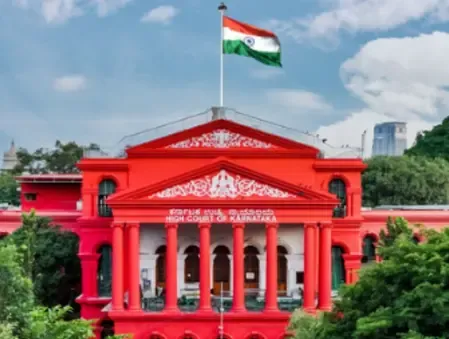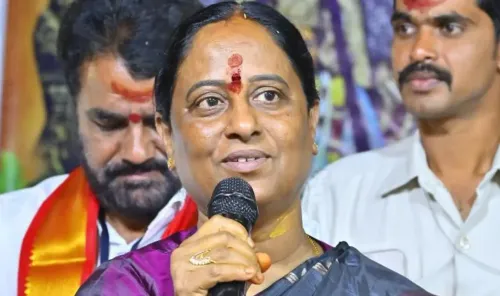Will the Karnataka HC Force the State to Respond in the Kannada Teaching Case?

Synopsis
Key Takeaways
- The Karnataka High Court has set a three-week deadline for the state to respond.
- Parents are challenging the mandatory teaching of Kannada in schools.
- The court expressed dissatisfaction with the state government's two-year delay.
- The PIL argues the laws violate students' rights to choose their languages.
- The petitioners aim to protect the interests of school children.
Bengaluru, July 11 (NationPress) The Karnataka High Court has directed the Congress-led administration in the state to provide a response within three weeks concerning its directive mandating the instruction of Kannada in CBSE and ICSE institutions.
This ruling was issued by a division bench led by Acting Chief Justice V. Kameshwar Rao and Justice C.M. Joshi during a hearing on a Public Interest Litigation (PIL) submitted by parents of children enrolled in CBSE and ICSE schools throughout Karnataka.
The PIL contests specific legislations introduced by the state government that require the teaching of Kannada as compulsory in schools.
Filed in 2023 by C. Somashekar and others, the PIL pointed out that the state government had yet to present its objections to the court.
Expressing concern over this procrastination, the bench noted that the Karnataka government has been inactive for the past two years.
The court urged the state government to hasten its reply and cautioned that it would contemplate granting relief to the petitioners if the state fails to meet this request.
The petition asserts that the Kannada Language Learning Act, 2015, and the Kannada Language Learning Rules, 2022, negatively affect both students and educators.
It argues that these legislations violate students' rights to select their first, second, and third languages, potentially impacting their academic success and future job prospects.
The PIL holds that these regulations are unconstitutional and inconsistent with current state education laws.
The petitioners sought the court's intervention to halt the enforcement of these laws, but the court declined to issue any interim orders until the state government files its objections.
The PIL clarified that the petitioners are not against the teaching of Kannada in schools and respect the language's rich heritage and literature.
However, they contend that the coercive implementation of this policy would harm students and infringe on constitutional principles.
Importantly, the petition was submitted not for personal benefit but in the interest of the public, especially school children.









